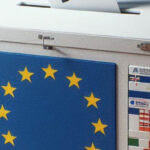"The price of freedom is priceless"
Last March 1st, six days after the outbreak of the war between Ukraine and the Russian Federation, the President of the European Commission Ursula von der Leyen produced, in front of the cameras gathered in Brussels to listen to her, a revealing pseudo-syllogism:
Yes, protecting our freedom comes at a price. But this is a defining moment. [Sanctions] are a cost we are willing to pay. Because freedom has no price.
This is a remarkable rhetorical somersault. Does freedom have a price, as the president points out at the beginning of the sentence, or does it not, as is stated at the end?
Clearly, when it is stated that freedom has "a price", what is meant here is an economic price, in particular that which implies its defense, while where it is stated that "it has no price", this clearly refers to the level of non-negotiable values. And yet, we are again in front of a sort of involuntary and revealing antiphrase, because here that "has no price" actually means that for the good in question we are ready to pay any cost, so, evidently, freedom has a price indeed.
Moral values and economics
This brings to mind a proverb that has spread throughout the Internet galaxy regarding the free nature of many services: "When a service is free, it means that you are the merchandise for sale". Von der Leyen's slogan seems, far from being a meaningless oxymoron, to go in that direction. On closer inspection it is man who, in economy as in everything, decides at what price a good can be acquired or purchased. If an object, for the judging subject, has no price, this means that it is simply already in his hands. On the contrary, Von der Leyen's "has no price" means more simply that the price of the good in question, freedom, is not known at the moment and that precisely because of this it is necessary to be ready to pay any price.
The use of categories borrowed from the economic sphere, such as that of price, to refer to something that pertains to the plane of values, should not make us think of a rhetorical device. The very word value is a loan from the lexicon of economics.
The value as desirable
Sociologist Hans Joas defined values as "emotionally charged notions of what is desirable [...] subjectively evident and emotionally appealing ideas". For Joas, but not only him, one of the fundamental characteristics of a value is that it embodies not only something desired, but rather something desirable. This is a distinction of no small importance, since it necessarily implies discrimination between personal preference, i.e., what we desire because it subjectively satisfies us, and what is desirable, i.e., what all members of a community desire because that aspiration is coessential to their very identity.
The circle begins to close: if freedom has no price, as implicitly stated by Von der Leyen, it means that we already possess it inwardly, at least at the level of desirability, and this means that it is a value.
Now, the essentially political problem that emerges is that placing freedom, or at least freedom as understood by Ursula von der Leyen, at the rank of a value, designates the latter as something desirable by all Europeans, something for which all Europeans are and will be willing to pay the highest price.
Nihilism and irruption of values
Here emerges the condition, already highlighted by Nietzsche, in which the old values have fallen, but the positions they once held have remained intact, ready to be occupied by new values. Price and value are in fact synonyms, and not only in economic jargon: what contemporary man forgets, forgetting at the same time both Nietzsche's and Weber's lesson, is that not only the monetary price is arbitrarily decided by a selling subject, but also values, far from being coessential to anyone, are set up (Setzungen) by subjects. In such an era of tensions between civilizations, a reflection on who gave such political subjects the right to set values on behalf of everyone should be at least put on the agenda.Setzungen) da parte di soggetti. In una simile epoca di tensioni tra civiltà, una riflessione su chi abbia dato a tali soggetti politici il diritto di porre valori a nome di tutti dovrebbe essere perlomeno calendarizzata.
The fact that the concept of value was making its way underground in the political sphere was a problem already known to Carl Schmitt, who in 1979 warned against this process. For Schmitt, the irruption of values in the political sphere represented one of the most exquisite symptoms of the nihilistic crisis of the nineteenth century, from which the West would still be far from emancipated. Behind Europe's eagerness to fill its mouth with loving freedom and equality, there remains an unconcealed nostalgia for the old fallen God, of whom the modern values of politically correct tolerance would be the substitute. From the God who died by patricide, the funeral of which had already been celebrated by Nietzsche, values inherit not only the aggressive logic of the old monotheisms, supposed holders of the ultimate Truth and guardians of the truth about what would make man truly happy, but also the same top positions and ethical and moral norms.
The new crusades
It is at this stage that values are presented to Europe plagued by nihilism as nothing more than a positivistic surrogate of the ancient metaphysics. If this were to happen, as it does, in conjunction with an event of war, it would become highly dangerous. If the value has occupied the supreme position reserved to the old God, it is clear that everything that opposes it will be stripped of any legitimacy: the other position is here relegated to mere irrationality (in the case of values with scientific-positivistic connotations, such as freedom of choice over one's own body during the pandemic) or to mere malignity (in the case of values with para-religious and messianic connotations, such as the liberal extremism of political correctness).
If the value is in itself coessential to a community or a line-up, it follows that what is opposed to it takes on the connotations of a disvalue to be fought regardless, as a mortal threat to the very existence of the community that does not recognize it. In this sense, the amorality (to be distinguished from the very different immorality) of nihilism is a much safer port, which, while not taking anything away from the man of his modern existential disorientation, however, protects him from new humanitarian crusades that, in the nuclear age, are configured as very dangerous.
Nietzsche's words in The Will to Power come to mind:
What I am telling is the story of the next two centuries.
It is to be hoped that he was right, because if the ancient values have collapsed, their seat is increasingly threatened by Proci much less prudent than the late God.
Research fellow at the Machiavelli Center. A philosophy scholar, he has been working for years on the topic of the revaluation of nihilism and the great German Romantic philosophy.









Scrivi un commento